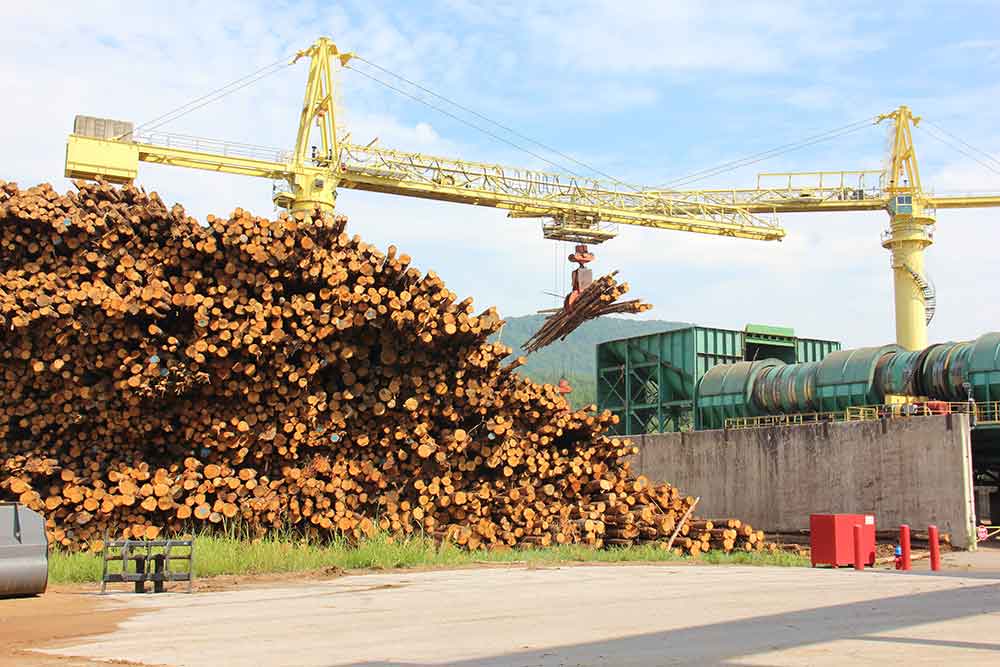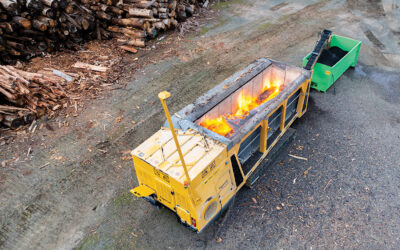Pulpwooders Lose Potential Market
“Once again, the state of Minnesota is giving the finger to good companies trying to create jobs here.”
That’s how Minnesota State Senator Justin Eichorn (R-Grand Rapids) responded to a Minnesota Court of Appeals decision in early February that would have caused further delay in the construction of a $440 million OSB plant by Huber Engineered Woods in Cohasset, but instead immediately prompted Huber to pull out of the project and begin looking to another state for the development of its sixth OSB plant.
Huber announced in June 2021 its plan to build the plant on nearly 200 acres adjacent Minnesota Power’s Boswell Energy Center and create 150 direct jobs with significant job and growth opportunities for area logging and trucking operations to supply the large plant.
But in a ruling on an appeal from the Leech Lake Band of Ojibwe (its reservation is a mile west of the proposed plant) and the Minnesota Center for Environmental Advocacy, the court of appeals said the Cohasset city planners’ earlier decision to only require an Environmental Assessment Worksheet (EAW) of the project, and not require a more detailed Environmental Impact Statement (EIS) needed to be re-addressed by the city because of issues involving a few acres of two “public waters wetlands” that the court said state law would require an EIS for.
The appeal from Leech Lake Band of Ojibwe and Minnesota Center for Environmental Advocacy also asked the court to weigh the environmental effects potentially caused by air emissions from the new OSB plant and from the volume of timber harvesting that the plant would require. The city had determined there would be no significant environmental effects from either, given the permitting and planning requirements the project would require going in. The appeals court ruled in favor of the city as to “no significant environmental effects” and against the Band and the Minnesota environmental group.

Huber wood yard at OSB mill
But the court took to task the city’s determination that an EAW was enough for the project with regard to public wetlands. Huber initially submitted an EAW and then, at the city’s request—following additional consultation and review from local citizens, state agencies, and other interested parties, and providing more information about the health of Minnesota’s forests and their ability to sustainably supply the facility, and providing more detail on the project’s carbon footprint, especially regarding the effects of generating much of the facility’s energy needs through wood fuels, and the carbon sequestration effects of the finished wood products—re-submitted the EAW, which the city accepted while deciding an EIS wasn’t necessary.
The Leech Lake Band of Ojibwe appealed, and the appeals court agreed, that the facility “falls into categories” for which an EIS is mandatory under Minnesota law, specifically as to the elimination of public waters wetland.
The city had determined that the project would not eliminate public water wetlands. But the court focused on two small public waters wetlands, which the court said are “accorded greater protection under state law.”
The court noted that the state’s definition of public waters wetlands is 10 or more acres in size in unincorporated areas and at least two and a half or more acres in incorporated areas. Huber’s EAW explained that its project would involve filling portions of two public waters wetlands, both in incorporated areas: 8.73 of 14.27 acres in one and 1.65 of 5.67 in another, and that while there would be a reduction in the size of each, it wouldn’t “eliminate” the public waters in question and only reduce the size, and thus not require an EIS. The city agreed that the partially filled public water wetlands would not fall below the 2.5 acre threshold after the partial filling.
The appeals court, however, said the state law did not explain what it means to “eliminate” a public waters wetland, and took the liberty to base its ruling that “eliminate” can also mean to “modify” the public waters wetlands, and ruled that because the project would alter the characteristics of the public wetlands the city should apply this legal standard and re-assess whether an EIS is necessary.
The Leech Lake Band also said the wetlands Huber planned to fill are a filter for water quality that nearby wild-rice beds depend upon, and removing the wetland filters would be harmful to the water quality. The court agreed, noting the city did not investigate or explain how wetlands replacement (as the project would entail) or stormwater controls would protect the wild-rice bed and other resources downstream.
The court said the city should reconsider given these stipulations and then issue a revised decision on the need for an EIS. Huber’s withdrawal from the project apparently now renders such an exercise as unnecessary.
Upon the announcement of Huber’s departure, Tamara Lowney, president of Itasca Economic Development Corp., told the Duluth News Tribune, “Today really feels like a funeral in my office, saying goodbye to the biggest opportunity that our region and our northern part of the state has seen in decades.”
The project would have replaced lost jobs and tax base as the adjacent Boswell coal-fired energy plant shuts down its coal burning units and possibly reconfigures to renewable energy sources.
The Cohasset OSB mill would have been Huber’s sixth, following facilities in Maine, Georgia, Virginia, Tennessee and Oklahoma.
Latest News
Weyerhaeuser Tops Forisk Timberlands List
Weyerhaeuser Tops Forisk Timberlands ListForisk released its 2025 edition of the North American Timberland Owner & Manager List, with Weyerhaeuser leading the way as an owner of 10,439 million...
Tigercat 6040 Carbonizer Creates Organic Carbon
Tigercat 6040 Carbonizer Creates Organic CarbonTigercat’s 6040 carbonizer is an environmentally friendly wood debris reduction and conversion system. The machine inputs unprocessed clean wood debris...
Acadian Acquires Maine’s Brochu Logging Assets
Acadian Acquires Maine's Brochu Logging AssetsIn February, Acadian Timber Corp. signed an agreement to purchase assets of A & A Brochu, LLC for a total price of U.S. $4.8 million. The assets...
WANT MORE CONTENT?
Spanning seven decades since its inception in 1952, Timber Harvesting highlights innovative and successful logging operations across the U.S. and around the world. Timber Harvesting also emphasizes new technology and provides the best marketing vehicle for the industry’s suppliers to reach the largest number of loggers in North America and beyond.
Call Us: 800.669.5613

